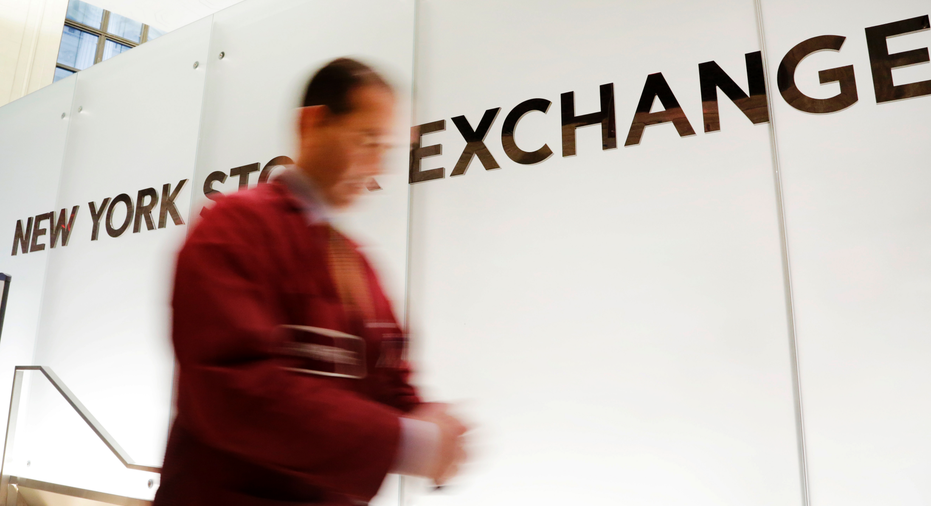Stocks keep pushing higher in 2018, led by retailers

NEW YORK – Rising retailers pushed U.S. stock indexes further into record territory on Friday, as the market's fabulous start to 2018 carried through its second week.
Interest rates also climbed after a report showed that a key component of inflation accelerated last month. But stocks absorbed the gains without a hiccup, unlike earlier in the week when rate worries helped send the Standard & Poor's 500 lower for its lone blemish this year.
The S&P 500 rose 18.68 points, or 0.7 percent, to 2,786.24 on Friday to close out its seventh week of gains in the last eight. The index is already up more than 4 percent for 2018.
The Dow Jones industrial average climbed 228.46, or 0.9 percent, to 25,803.19, the Nasdaq composite rose 49.28, or 0.7 percent, to 7,261.06 and the Russell 2000 index of small-cap stocks gained 5.18, or 0.3 percent, to 1,591.97.
Retailers led the way after a government report confirmed that the holiday shopping season was a strong one, with retail sales rising 0.4 percent last month following a 0.9 percent surge in November. The numbers fit with what individual retailers have said recently, and several have raised their profit forecasts as a result.
Shares of Kohl's, Target, Nordstrom and Dollar Tree all jumped more than 3 percent.
Treasury yields, meanwhile, rose after a key measure of inflation rose more last month than economists expected.
Overall inflation slowed in December, but that was mostly due to gasoline and other items that are prone to quick changes in price. "Core" inflation, which looks at the steadier components of the consumer price index, accelerated more than expected last month.
That pushed the yield on the two-year Treasury to 2.00 percent from 1.98 percent late Thursday. The yield on the 10-year Treasury note held steady at 2.54 percent after climbing as high as 2.59 percent in the morning.
Investors have been preparing for a gradual rise in rates, as the Federal Reserve slowly removes the aid it provided the economy following the Great Recession. The worry is that a surprise spike in inflation would force central banks to move more quickly on rates than investors expect and upset markets.
Stocks have been remarkably calm and strong for more than a year. Sandy Villere, a partner and portfolio manager at Villere & Co., said he's optimistic stocks can rise even further because the economy is strengthening and Washington's move to cut tax rates last month will boost corporate profits, among other reasons.
But some caution is starting to creep in as prices keep climbing. Villere said he's holding more cash than prior years as the types of stocks he prefers become more difficult to find: companies with strong growth but low prices relative to their earnings and growth.
"We're not fully invested at this point, but we haven't switched to pure defense yet either," Villere said. "Things are good enough to keep things going solidly, at least for the first half of 2018. We try not to be greedy about it."
The next tests for companies will arrive in coming weeks, as they report their results for the last three months of 2017. Expectations are generally high, and analysts are forecasting growth of nearly 11 percent for S&P 500 earnings per share, according to S&P Global Market Intelligence.
Financial companies are some of the earliest to report, and BlackRock jumped $17.61, or 3.3 percent, to $555.53 after it reported stronger earnings than analysts expected.
On the losing end was Facebook, which fell after the social-media giant said it will show users fewer posts from brands and fewer videos in favor of more posts from friends and family. The changes may mean people spend less time on Facebook, and less advertising revenue for the company.
Facebook dropped $8.40, or 4.5 percent, to $179.37.
In markets abroad, Japan's Nikkei 225 index lost 0.2 percent, South Korea's Kospi advanced 0.3 percent and Hong Kong's Hang Seng jumped 0.9 percent.
France's CAC 40 gained 0.5 percent, the FTSE 100 in London rose 0.2 percent and Germany's DAX climbed 0.3 percent.
The euro jumped to $1.2181 from $1.2036 late Thursday. The British pound rose to $1.3734 from $1.3536, and the dollar held steady at 111.09 Japanese yen.
In the commodities markets, benchmark U.S. crude rose 50 cents to settle at $64.30 per barrel. Brent crude, the international standard, gained 61 cents to $69.87 per barrel.
Natural gas gained 12 cents to $3.20 per 1,000 cubic feet, heating oil added a penny to $2.09 per gallon and wholesale gasoline rose 1 cent to $1.85 per gallon.
Gold rose $12.40 to settle at $1,334.90 per ounce, silver added 18 cents to $17.14 per ounce and copper dipped a penny to $3.22 per pound.



















